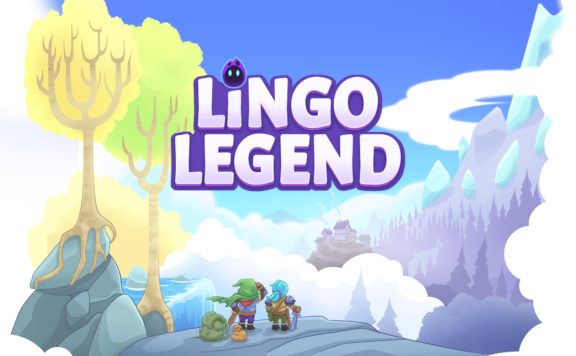With the advent of smartphones and tablets, gaming has found a new home in the pockets and purses of millions worldwide. The era of mobile gaming has taken the industry by storm, transforming how we play and bringing gaming to a new audience. Online Slots are also becoming a trend in the world of mobile gaming, where each app has its own features and bonuses.
The Emergence of App Stores
The launch of Apple’s App Store in 2008 revolutionized the gaming landscape. Suddenly, users had access to a vast library of games at their fingertips. Developers quickly recognized the potential of mobile gaming and started creating innovative and addictive experiences tailored for touchscreens. Android’s Google Play Store followed suit, further fueling the growth of mobile gaming.
Casual Gaming Takes Center Stage
Mobile gaming brought gaming to a broader audience, making casual games immensely popular. These games, characterized by simple mechanics, quick play sessions, and easy-to-learn controls, appealed to seasoned gamers and newcomers alike. Titles like Angry Birds and Candy Crush Saga became cultural phenomena, reaching millions of players worldwide and redefining the perception of gaming.
The Rise of Freemium Model
Another significant aspect of mobile gaming is the freemium model, where games are free to download but offer in-app purchases to enhance gameplay or unlock additional content. This model has proven highly successful, allowing developers to generate revenue while offering a free-to-play experience. However, it has also raised concerns about predatory practices and the potential for excessive microtransactions.
eSports on the Go
Mobile gaming has also made significant inroads into the world of competitive gaming. eSports, or electronic sports, have seen a surge in popularity in recent years, with mobile games like PUBG Mobile and Mobile Legends: Bang Bang hosting international tournaments with substantial prize pools. The accessibility and convenience of mobile gaming have allowed players to participate in eSports competitions anytime, anywhere.
Technological Advancements
Advancements in mobile technology have played a crucial role in the growth of mobile gaming. Each new generation of smartphones and tablets has improved hardware capabilities, allowing for more sophisticated and visually stunning games. Additionally, the rise of cloud gaming services has enabled streaming high-quality games directly to mobile devices, eliminating the need for powerful hardware.
The Future of Mobile Gaming
As technology continues to evolve, the future of mobile gaming looks promising. The introduction of 5G networks promises faster download and upload speeds, reducing latency and enabling more seamless multiplayer experiences. Furthermore, the integration of augmented reality (AR) and virtual reality (VR) technologies into mobile devices opens up new possibilities for immersive gaming experiences.

The Impact of Social Connectivity
Not only has the era of mobile gaming transformed the way we play games but also the way we connect with others. Social connectivity has become a crucial component of mobile gaming, with features like multiplayer modes, chat functions, and social media integration allowing players to engage and interact with friends and fellow gamers. The ability to compete, cooperate, and communicate in real-time has created a sense of community within the mobile gaming sphere.
The Rise of Indie Game Development
On top of that, the era of mobile gaming has provided a platform for independent game developers to showcase their creativity and talent. The low entry barrier and accessibility of mobile platforms have empowered indie developers to create unique and innovative gaming experiences. Titles like Monument Valley and Stardew Valley have gained critical acclaim and commercial success, demonstrating the significance of indie games in the mobile gaming landscape.
Gamification in Other Industries
The influence of mobile gaming extends beyond the gaming industry itself. The concept of gamification, which applies gaming elements to non-gaming contexts, has gained traction in various fields, including education, fitness, and marketing. Mobile apps that gamify learning, exercise routines, or loyalty programs have emerged as powerful tools to engage and motivate users, leveraging the addictive nature of gaming to drive desired behaviors.
Regulatory Challenges and Ethical Considerations
The rapid growth of mobile gaming has raised important regulatory and ethical considerations. Concerns regarding loot boxes, in-app purchases, and the impact of excessive screen time on mental health have prompted discussions about responsible game design and consumer protection. Governments and industry bodies have taken steps to address these issues, implementing regulations and guidelines to ensure a safe and fair gaming environment.
Mobile Gaming as a Cultural Phenomenon
Mobile gaming has transcended geographical and cultural boundaries, becoming a global cultural phenomenon. From popular puzzle games to location-based augmented reality experiences like Pokémon Go, mobile games have impacted popular culture and become a part of mainstream entertainment. They have also influenced other forms of media, such as movies and merchandise, further cementing their place in popular culture.
There’s no denying that the era of mobile gaming has reshaped the gaming industry, democratizing access to games and introducing new gameplay experiences. Its widespread popularity and constant innovation make it an integral part of the gaming landscape. As we move forward, mobile gaming will continue to push boundaries, offering players new ways to engage with their favorite titles and explore uncharted gaming territories.







